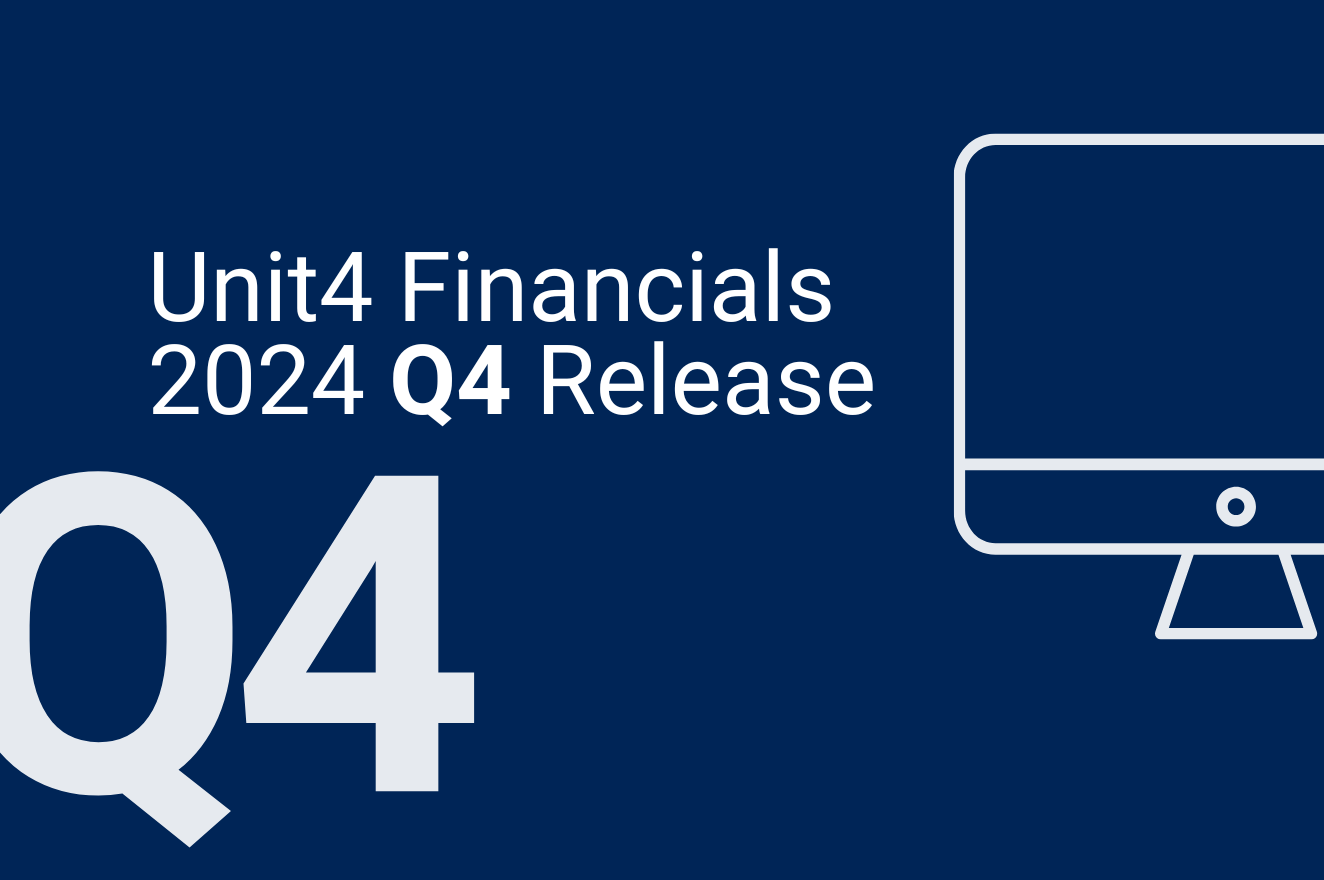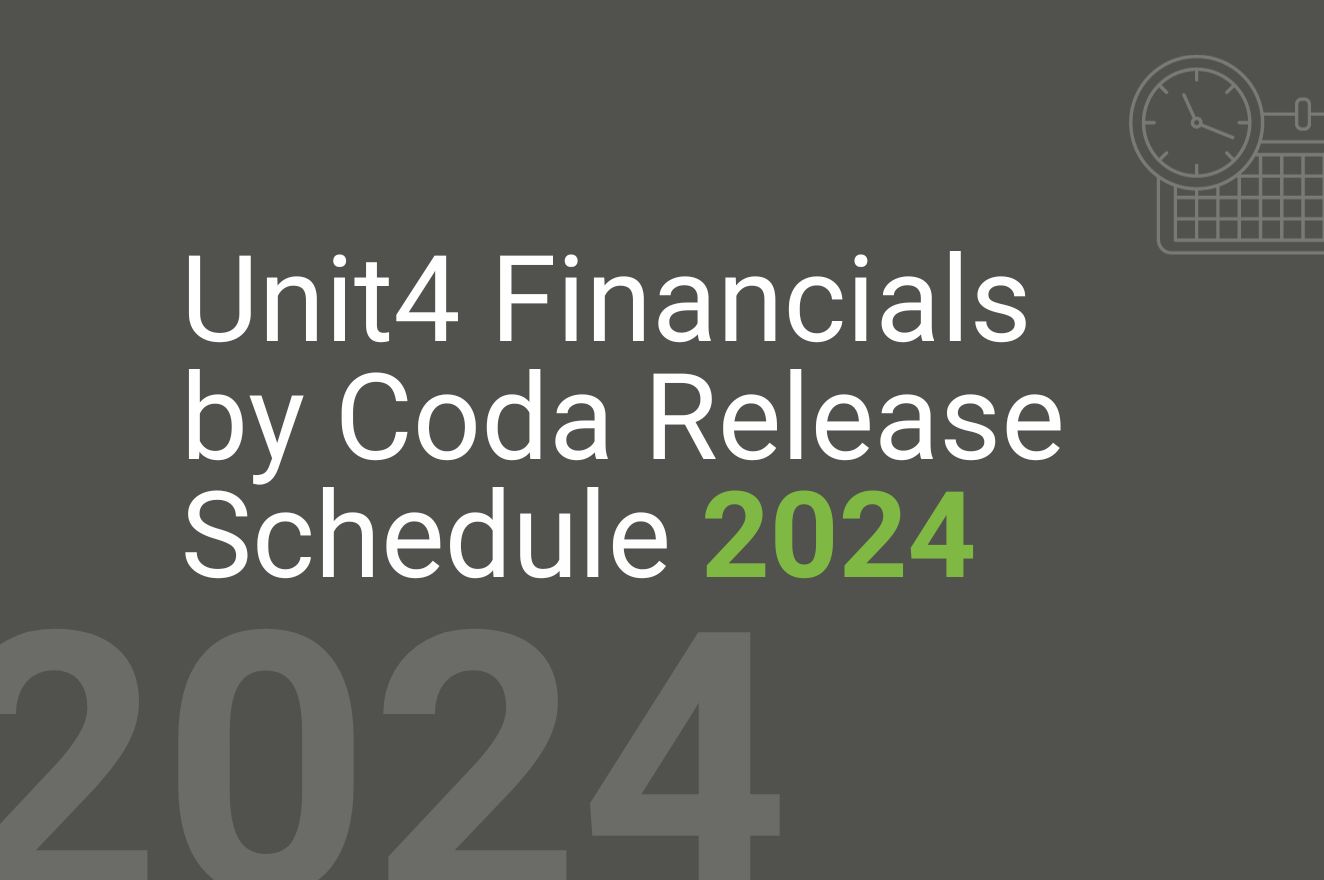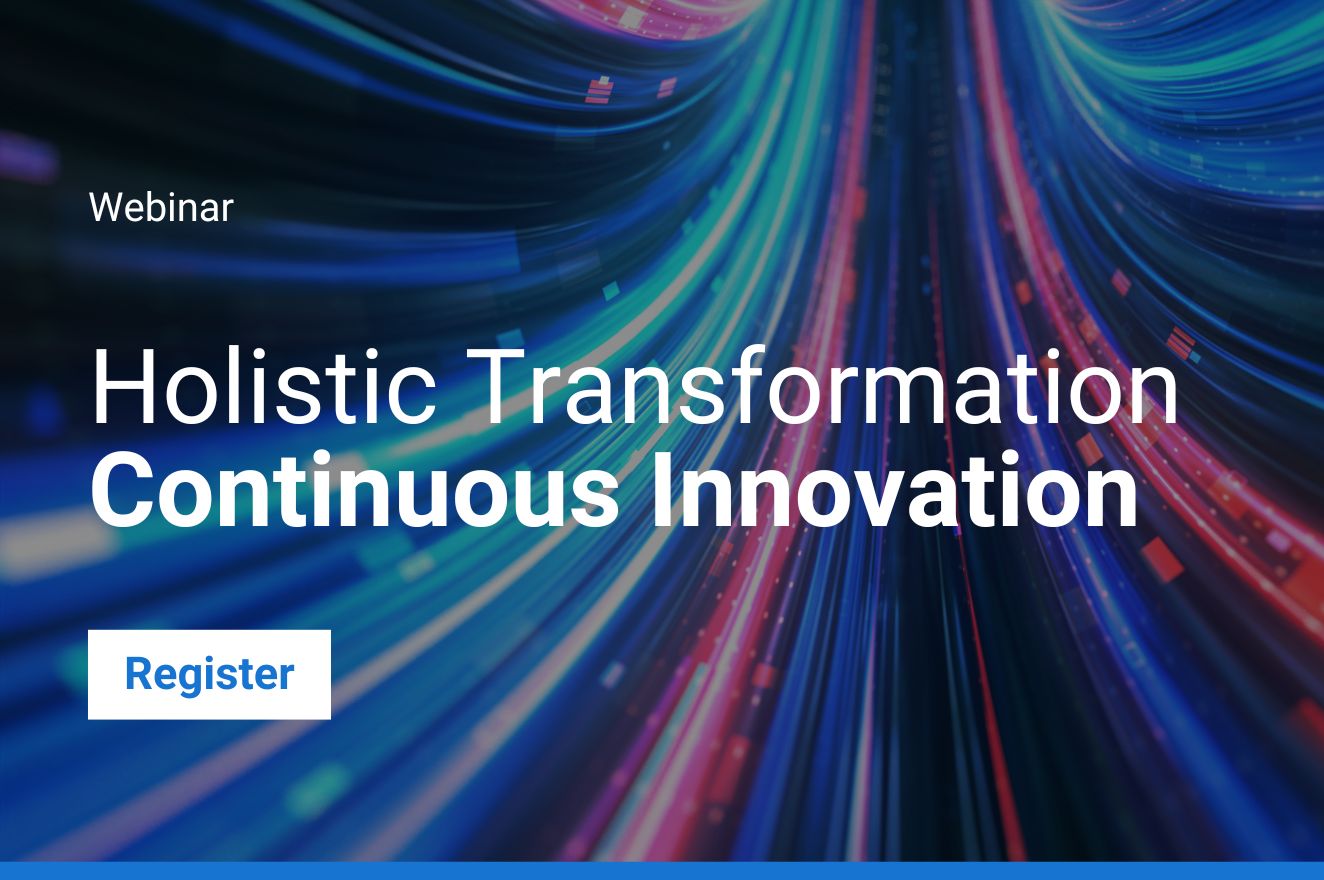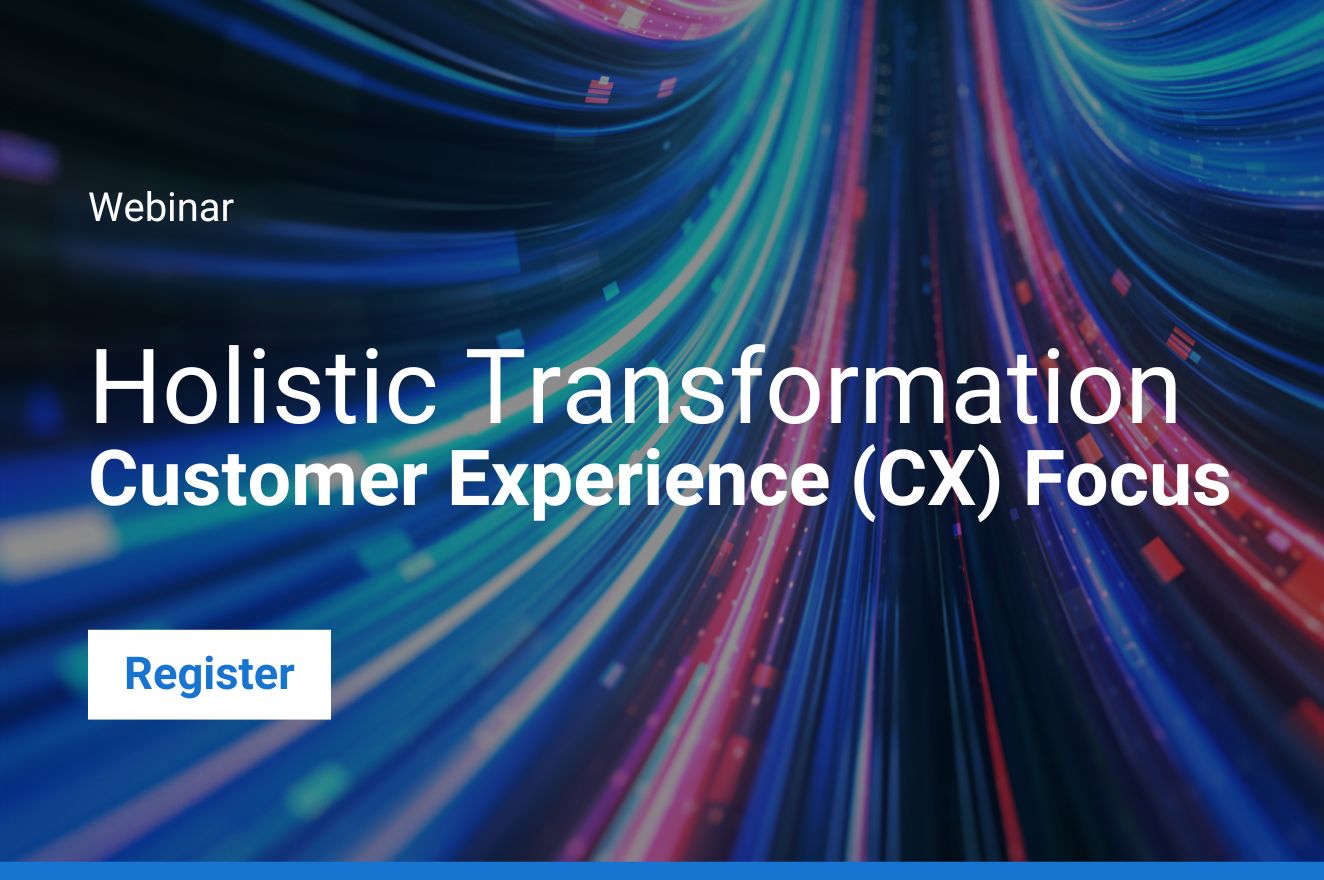Millennium+ Webinar

Unlock the full potential of your Unit4 Ecosystem
Tuesday 21st October 2025 at 14.00 p.m. UK
Duration: 30 minutes
Maximise the potential of your Unit4 ecosystem with Millennium+. Whether you use Unit4 Financials by Coda, ERP, or any other Unit4 product, our tailored service packages ensure you receive the support and enhancements your business requires.
Join our exclusive webinar to learn:
- What Millennium+ provides: A comprehensive overview of our support and enhancement services.
- How Millennium+ helps maximise ROI: Explore how our solutions drive efficiency, reduce costs, and improve system utilisation.
- Why Millennium+ is suitable for everyone: Scalable packages designed to meet the needs of businesses of all sizes and industries.
- Transparent cost base with loyalty rewards: Understand our clear pricing structure and how our approach rewards long-term partnerships.
Who should attend?
This session is ideal for Unit4 users, decision-makers, and anyone seeking to optimise their software investment.
Tuesday 21st October 2025 at 14.00 p.m. UK for 30 minutes
Chris Peall
Director of Professional Services at Millennium Consulting
Chris Peall oversees all projects & services and is the Product Owner of all Millennium IP.
Chris has over 20 years working across the industry in the Data Science, Business Analytics, Architecture and Project Management spaces. He ensures that you will have access to the most relevant and experienced members of the team to suit your needs, and that results are delivered in an expedient and professional manner.


Unit4 Support Services
Support, maintain, enhance and enrich your ecosystem with Millennium+
Financials Focus: Billing in Coda
Millennium Consulting Webinar Series
Financials Focus: Billing in Coda
Wednesday 30th April 2025 at 14.00 p.m. UK
Duration: 30 minutes
Join Millennium Consulting’s Webinar Series, Financials Focus event on Billing in Coda.
Wednesday 30th April 2025 at 14.00 p.m. UK for 30 minutes
If your Unit4 Financials by Coda system is already in the Cloud or you plan to move soon, this session is essential.
Billing is a relatively new module, and the good news is that Billing licences are included as part of the Core product—at no extra cost. This means you already have access to a powerful invoicing solution or will get it when you move to the Cloud.
Billing offers a far superior invoicing process compared to the Financials module’s “Print Invoice” function. It provides enhanced flexibility, automation, and seamless integration with third-party CRM and SOP systems. This is your chance to see firsthand how Billing works and how it can transform your invoicing process.
Agenda
- What is Billing?
- Advantages of Billing Module versus Financials Module ‘Print Invoice’
- Flexifields in Billing
- Print Formatter, Flexifields and Issuing of Invoices
- Billing Licencing in the Cloud
- Demonstration
N.B. You will receive a link to the session after registering.
Presented by
Phil Leaf
Principal Unit4 Functional Consultant at Millennium Consulting
Phil is one of the world’s leading experts in the use of Unit4 Financials by Coda, with over 25 years of experience providing strategic advice, project management, implementation, and migration services for clients across the globe.

Did you know...
We are an Elite Unit4 Partner
We are an Elite Unit4 partner and a leading reseller around the world. That means we have the knowledge and experience to design, implement and support the right Unit4 Financials solution for your business. We also make it easy to extend your system, providing additional applications that allow you to augment and tailor your solution to more closely meet your needs.
Financials Focus: Archiving
Millennium Consulting Webinar Series
Financials Focus: Archiving
Thursday 12th June 2025 at 14.00 p.m. UK
Duration: 30 minutes
Join Millennium Consulting’s Webinar Series, Financials Focus event on Archiving in Unit4 Financials by Coda.
Do you regularly run the archiving function in Unit4 Financials? Have you noticed slower response times for queries, searches, browses, or transactional reports?
This could be due to users sifting through millions of irrelevant data entries that should have been archived.
Join us for this insightful session, where we’ll cover:
- How archiving works in Unit4 Financials by Coda
- The different types of archiving available
- Best practices for effective archiving
Regular archiving is essential for any accounting or financial management solution. It helps control dataset size, improve processing speeds, and optimise system performance.
Register today to learn how to archive your Unit4 Financials data efficiently!
Thursday 12th June 2025 at 14.00 p.m. UK for 30 minutes
Phil Leaf
Systems Architect/Principal Consultant at Millennium Consulting
Phil is one of the world’s leading experts in the use of Unit4 Financials, with over 25 years of experience providing strategic advice, project management, implementation, and migration services for clients across the globe.

Did you know...
We are an Elite Unit4 Partner
We are an Elite Unit4 partner and a leading reseller around the world. That means we have the knowledge and experience to design, implement and support the right Unit4 Financials solution for your business. We also make it easy to extend your system, providing additional applications that allow you to augment and tailor your solution to more closely meet your needs.
Financials Focus: Flexi Fields
Millennium Consulting Webinar Series
Financials Focus: Flexi Fields
Thursday 2nd October 2025 at 14.00 p.m. UK
Duration: 45 minutes
Join Millennium Consulting’s Webinar Series, Financials Focus event on Flexi Fields.
Thursday 2nd October 2025 at 14.00 p.m. UK for 45 minutes
The session will cover the following:
- What are flexi fields?
- What are the different types?
- How can they be used?
- How to use them in Interfaces?
- How can you use them in reports?
- How can they be output?
Learn how to expand Unit4 Financials by Coda from a financial ledger system to a management reporting information system using flexi fields.
N.B. you will receive a link to the session after registering.
Presented by
Phil Leaf
Principal Unit4 Functional Consultant at Millennium Consulting
Phil is one of the world’s leading experts in the use of Unit4 Financials by Coda, with over 25 years of experience providing strategic advice, project management, implementation, and migration services for clients across the globe.

Did you know...
We are an Elite Unit4 Partner
We are an Elite Unit4 partner and a leading reseller around the world. That means we have the knowledge and experience to design, implement and support the right Unit4 Financials solution for your business. We also make it easy to extend your system, providing additional applications that allow you to augment and tailor your solution to more closely meet your needs.
Unit4 Financials 2024 Q4 Release
Unit4 Financials by Coda 2024Q4 was made available on 3rd December 2024.
The new release contains all the previous Unit4 Financials by Coda functionality, new features, security updates, and customer-identified fixes to extend the best-in-class software solution. Unit4 has addressed many customer-reported issues and hence always encourages customers to upgrade to the latest release.
Highlights of the 2024Q4 release include:
Administration:
Hyperlink on Print Formats
It is now possible to have a hyperlink on a print format.
Finance:
Element Master
The Credit note document and Mapping master can now be specified on a Supplier element for use in Electronic Invoicing.
Company Master
The Credit note document and Mapping master can now be specified on the Company for use in Electronic Invoicing.
Electronic Invoicing:
API
The Electronic Invoicing REST resource is now available to allow authorized users to submit a UBL Invoice or Credit Note to Unit4 Financials by Coda.
Invoice Maintenance
The document type is now displayed in the Invoice Maintenance grid.
It is now possible to delete rows from within Invoice Maintenance.
Public API:
REST API
A new suite of REST API functions is now available.
The REST API follows the same business structure as the XMLi and SOAP API options, so each functional operation available in those integration methods is also available in the REST API.
Technical:
Security Updates
A vulnerability in the ExtJS user interface library has been resolved.
HTTP security headers (Cross-Origin-Resource-Policy and Permissions-Policy) have been added to the WildFly setup scripts as default.
A third-party library, Apache XML Graphics FOP, used in the printing functionality has been updated to improve security.
Deprecated features:
The .NET router has been deprecated. The final release has not been determined.
32-bit XL is deprecated and will be removed in the 2025Q1 Release. We recommend the use of 64-bit XL.
The Integration Toolkit Command Centre module (ITK) has been deprecated and will be removed in a future release. The final release has not been determined.
General Fixes/Updates:
- It is no longer possible to delete the user master which is registered as the system user in Application Parameters.
- Table Link Document Housekeeping now deletes the flexi field data when the table naming does not match the flexi field master code.
- Print Formatter Print functionality has been corrected.
- The Document approver field is now populated in Browse Details when this field is set on the presenter.
- Microsoft SQL Server Hint Masters now work correctly when selecting data for the Pay/Collect process.
- Where Intray modification is prevented, the user can now auto-post from Intray to Books for manual tax and Intercompany documents.
- In Finance Input the ‘Resolve‘ button will also be triggered on leaving the field if the value in the field has not been modified.
- Shared master audit no longer shows errors for Electronic Invoicing account mappings on recently created element masters.
- When confirming reminder letters using webservices the
GetProgressservice now returns the appropriate response - Reporting Codes and Element Status are now correctly displayed in Browse Balances when the description is more than 20 characters. A serious error no longer occurs.
- The selector operator ‘Is blank‘ is now available in XL when using Generic Browse.
- Property
com.coda.common.app.attachment.http.checkRemoteis now documented in the Configuration Settings Guide. - The
Strict-Transport-SecurityHTTP header is now correctly set. This fix particularly affects users of WebSphere where later fix packs now perform validation of HTTP header names. - Memory usage when exporting data to Microsoft Excel has been reduce, e.g., exporting data from Browse Details.
Further details on the new features, security updates and reported issues can be found in the release documentation.
The release documentation for this release (and previous releases) can be found in the documentation area on the community.
The software can be downloaded from the “Software” tab on Community4U.
Release dates for Cloud users
Unit4 Cloud customers are notified by Unit4 Cloud support when their pre-production and production systems will be updated. This information can also be found within the Cloud Services – Release Schedules area.
View the 2024 Release Schedule here
The Release Notes detailing the fixes and features within this release can be found in the Documentation area on Unit4’s Community 4U.
Are you making the most of Unit4 Financials by Coda?
Our Systems Health Check is designed to help you identify areas where you may be able to improve performance and ensure you extract the maximum benefit from your investment in Unit4 Financials by Coda.
Unit4 Financials by Coda Release Schedule 2024
Unit4 Financials by Coda is maintained via continuous release cycle of the software. An .iso is available from within Unit4’s Community 4U.
Local / Additional modules are released independently of the above release cycles and are notified via Unit4’s Community 4U. The maintenance of local products at v14 ceased at the end of December 2022.
Below you will find the currently planned release availability dates of Unit4 Financials by Coda Continuous Release during 2024. The dates below are advising of the date the software is released from Engineering and downloadable by our on-premise customers.
Unit4 Financials by Coda Continuous Release
| 2023Q4 Release | Released 5th December 2023 |
| 2024Q1 Release
2024Q1 Release 2 |
Released 12th March 2024
Released 15th April 2024 |
| 2024Q2 Release
2024Q2 Release 2 |
Released 11th June 2024
Released 1st July 2024 |
| 2024Q3 Release | Released 10th September 2024 |
| 2024Q4 Release | Released 3rd December 2024
(The final release available for on-premise customers) |
These dates can sometimes be subject to alteration.
Unit4 Financials by Coda, Cloud Upgrades Schedule 2024
Unit4 Cloud customers are notified by Unit4 Cloud support when their pre-production and production systems will be updated. This information can also be found within the Cloud Services – Release Schedules area.
| 2024 | Preview | Acceptance | Production (Planned Maintenance Window) |
| Q1 | Tuesday 19th March 2024 | Tuesday 26th March 2024 | 20th /21st April 2024 |
| Q1 R2 | Tuesday 19th March 2024 | Tuesday 26th March 2024 | 25th/ 26th May 2024 |
| Q2 | Tuesday 18th June 2024 | Tuesday 25th June 2024 | 20th /21st July 2024 |
| Q2 R2 | Monday 1st July 2024 | Friday 5th July 2024 | 20th /21st July 2024 |
| Q3 | Tuesday 17th September 2024 | Tuesday 24th September 2024 | 19th /20th October 2024 |
| Q4 | Tuesday 10th December 2024 | Tuesday 17th December 2024 | 25th /26th January 2025 |
These dates can sometimes be subject to alteration.
On 17th October 2023, Unit4 announced to its customers that it has taken a strategic decision to provide only Software as a Service (SaaS) solutions going forward. With Cloud being industry standard, we are transitioning on-premises Unit4 ERP, Unit4Financials by Coda, and Unit4 FP&A to being fully cloud based solutions.
With that, these solutions will no longer be supported or maintained by Unit4 with effect from 31st December 2024. Millennium and Unit4 are offering all on-premise customers a clear and attractive opportunity to migrate to the Unit4 Cloud.
Legacy software versions
v14
Release 19 – Released 28th October 2022
Critical bug fix end date has been reached for v14 – Please contact your Unit4 Account Manager to discuss upgrade options to Unit4 Financials by Coda Continuous Release.
v13
Service Pack 23 – Released 27th September 2019
Critical bug fix end date has been reached for v13 – Please contact your Unit4 Account Manager to discuss upgrade options to Unit4 Financials by Coda Continuous Release.
Why choose Millennium for Unit4 Financials by Coda?
We are an Elite Unit4 Partner with more than three decades of experience working with Unit4 Financials by Coda. That means we have the knowledge and experience to design, implement and support the right Unit4 Financials solution for your business.
Continuous Innovation
Millennium Consulting Webinar Series
Holistic Transformation
In a world where technology evolves at lightning speed, organisations must foster continuous innovation rather than relying on periodic overhauls.
Join Millennium to explore how establishing innovation labs, forming strategic partnerships, and embracing a culture of innovation can keep your organisation at the cutting edge.
Scheduled for Thursday 25th March 2027 from 3:00 PM to 3:45 PM GMT.
Key topics covered:
- Building a culture of continuous innovation within your organisation.
- The role of innovation labs in driving technological evolution.
- Creating strategic partnerships to access cutting-edge solutions.
- Avoiding stagnation with proactive, iterative advancements.
- Real-world success stories of organisations thriving through continuous innovation.
This session is for business leaders/decision-makers, sharing how strategic technology transformation can enable their organisations to achieve long-term success.
Hosted by Millennium’s CEO, Philip Keet
Sustainability
Millennium Consulting Webinar Series
Holistic Transformation
Adopting sustainable technology solutions has never been more critical as organisations strive to meet Environmental, Social, and Governance (ESG) goals.
Join Millennium for a forward-thinking webinar that explores how to incorporate environmentally friendly technology practices into your organisation’s transformation journey while aligning with broader ESG objectives.
Scheduled for Thursday 3rd December 2026 from 3:00 PM to 3:45 PM GMT.
Key topics covered:
- Leveraging technology to reduce environmental impact and carbon footprints.
- Integrating sustainable practices into technology transformation initiatives.
- Aligning digital strategies with ESG goals for long-term resilience.
- Measuring the ROI of sustainability-focused technology investments.
- Examples of organisations achieving ESG success through innovation.
This session is for business leaders/decision-makers, sharing how strategic technology transformation can enable their organisations to achieve long-term success.
Hosted by Millennium’s CEO, Philip Keet
Data-Driven Decision Making
Millennium Consulting Webinar Series
Holistic Transformation
Data is the foundation of modern business strategy, but how can organisations effectively harness its power?
Join Millennium for a webinar exploring how data analytics can inform strategy and operations, while prioritising data security and privacy to foster trust and ensure compliance.
Scheduled for Thursday 24th September 2026 from 3:00 PM to 3:45 PM GMT.
Key topics covered:
- Using data analytics to drive strategic and operational decisions.
- Building a data-centric culture to enhance organisational agility.
- Prioritising data security and privacy to maintain trust and regulatory compliance.
- Real-world examples of leveraging data for competitive advantage.
- Future trends in data-driven decision-making.
This session is for business leaders/decision-makers, sharing how strategic technology transformation can enable their organisations to achieve long-term success.
Hosted by Millennium’s CEO, Philip Keet
Customer Experience (CX) Focus
Millennium Consulting Webinar Series
Holistic Transformation
Exceptional customer experience (CX) is at the heart of successful organisations.
Join Millennium for a webinar where we explore how to design systems and processes that elevate customer interactions and satisfaction. Learn how leveraging data insights can create personalised, seamless experiences that drive loyalty and growth.
Scheduled for Thursday 25th June 2026 from 3:00 PM to 3:45 PM GMT.
Key topics covered:
- Understanding the role of technology in improving customer interactions.
- Leveraging data insights to deliver personalised CX strategies.
- Designing systems that enable seamless, end-to-end customer journeys.
- Measuring the impact of CX initiatives on customer satisfaction and business performance.
- Practical examples of organisations achieving CX excellence through innovation.
This session is for business leaders/decision-makers, sharing how strategic technology transformation can enable their organisations to achieve long-term success.
Hosted by Millennium’s CEO, Philip Keet
















